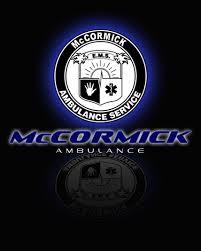McCormick Struggles to Meet Emergency Response Time Requirement
 New records released by the City Clerk’s office reveal that McCormick was non-compliant to the City’s emergency services contract in the first week of performance. McCormick was the only evaluated bidder that committed to meeting Torrance’s requirement of an 8 minute response 92% of the time. City staff cited that commitment by McCormick as a key differentiating factor in scoring McCormick higher than the other evaluated bidders. If the first week of performance was any indication, however, it appears that McCormick will have a real challenge living up to this commitment.
New records released by the City Clerk’s office reveal that McCormick was non-compliant to the City’s emergency services contract in the first week of performance. McCormick was the only evaluated bidder that committed to meeting Torrance’s requirement of an 8 minute response 92% of the time. City staff cited that commitment by McCormick as a key differentiating factor in scoring McCormick higher than the other evaluated bidders. If the first week of performance was any indication, however, it appears that McCormick will have a real challenge living up to this commitment.
The data provided by the City included 116 “911” emergency calls received between 03 and 07 December 2014 just after McCormick initiated performance. Of those 116 calls, McCormick had a response time of above the 8 minute requirement on 16 of them for an on-time response rate of 86.2%.
In 14 of the calls it appears the transport was canceled after dispatch (presumably in transit). If the call was canceled prior to arrival and before the 8 minute requirement had expired, then I counted it as on time (11 of the 14). I counted it as late if the call was canceled after 8 minutes and McCormick still had not arrived (3 of the 14). Even if you factored all these calls as on-time, leaving McCormick with only 13 misses, the on-time response percentage would only bump up to 88.7% – still well below the 92% requirement.
A key factor not known is whether McCormick responded to these calls Code 3 (lights and sirens) or Code 2 (no lights and sirens) as is customary in Torrance.
The data set also includes 7 calls in which McCormick responded in 7 seconds or less (4 of these showed a response time of 0 seconds). This is a likely due to a lag time of anywhere from 40 to 90 seconds between when the City received the emergency call and when it was formally dispatched to the ambulance provider. TFD acknowledged that when they scored Gerber (the previous transport provider), they counted from the time the City received the call. Gerber counted from the actual dispatch time resulting in Gerber scoring themselves higher than TFD did.
It appears from the data that McCormick is being scored against the more lenient dispatch time standard. This essentially would give them an additional 40 to 90 seconds over what Gerber had. As an indication of how significant the difference can be, McCormick might have an additional 16 late responses if they were scored against the higher standard – which would cause their on-time response percentage to plummet down to 72.4%.
As a reference point, Torrance Fire Department (TFD) claimed that Gerber ambulance was in breach of their contract for failing to meet the response time requirement. In the notice of default letter submitted against Gerber, TFD cited Gerber’s average response time of 88.9% over nearly a two year period as cause for their default.
Given the numbers provided, it would appear McCormick is also now in default of their contract leaving the City in an awkward position. Many councilmembers cited Gerber’s non-compliance with the contract as justification for making the award to McCormick. What should they do now that McCormick also appears to be in breach?
When the contract was awarded to McCormick, many questioned the process and the apparent conflicts of interest that led to the decision. McCormick’s initial performance now raises the question of whether Torrance residents should also be concerned that they are actually less safe with McCormick providing emergency transport services than they were with Gerber.


